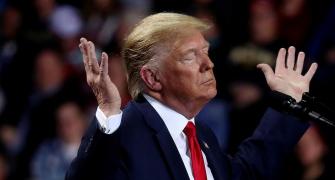The United States has frozen all assets of the Tamil Rehabilitation Organisation, a front of the Liberation Tigers of Tamil Eelam, as part of its aim to financially isolate terrorist groups and their support networks.
The US Department of the Treasury announced last night that it would freeze the US held assets of the TRO, a charitable organisation that acts as a front to facilitate fund-raising and procurement for LTTE.
'In the United States, the TRO has raised funds on behalf of the LTTE through a network of individual representatives,' the US mission statement said in Colombo.
The TRO was designated under Executive Order 13,224, which is aimed at financially isolating terrorist groups and their support networks, the statement said.
The LTTE has been designated by the United States as a Specially Designated Global Terrorist Organisation since 2001 and a Foreign Terrorist Organisation since 1997.
Welcoming the US decision, Sri Lankan foreign minister Rohitha Bogollagama said United States was the first foreign government to take tangible action against an LTTE front organisation following detailed investigations.
"As has been pointed out by Sri Lanka for sometime the proscription of the LTTE have been undermined by the continuing ability for front organisations of the LTTE, particularly the TRO to continue collecting funds to beef up the LTTE arsenal," he said.
"This freezing of the assets of the TRO and other allied bodies would no doubt set a precedent to several other countries, which are also investigating LTTE front organisations to take tangible action against these fronts," Bogollagama told media persons.
According to source within the organisation, the TRO is the preferred conduit of funds from the United States to the LTTE in Sri Lanka, it said, adding the TRO also has facilitated LTTE procurement operations in the United States.
Those operations included the purchase of ammunition, equipment, communication devices, and other technology for the LTTE, it said.
The TRO's efforts worldwide have reportedly allowed the LTTE to use humanitarian aid, which it collected for the international community after the December 2004 tsunami, to launch new campaigns to strengthen the LTTE's military capacity.







